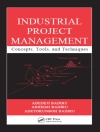It has long been recognized that an improved standard of living results from advances in technology, not from the accumulation of capital. It has also become clear that what truly separates developed from less-developed countries is not just a gap in resources or output but a gap in knowledge. In fact, the pace at which developing countries grow is largely a function of the pace at which they close that gap.
Thus, to understand how countries grow and develop, it is essential to know how they learn and become more productive and what government can do to promote learning. In Creating a Learning Society, Joseph E. Stiglitz and Bruce C. Greenwald cast light on the significance of this insight for economic theory and policy. Taking as a starting point Kenneth J. Arrow’s 1962 paper ‘Learning by Doing, ‘ they explain why the production of knowledge differs from that of other goods and why market economies alone typically do not produce and transmit knowledge efficiently. Closing knowledge gaps and helping laggards learn are central to growth and development. But creating a learning society is equally crucial if we are to sustain improved living standards in advanced countries.
Combining accessible prose with technical economic analysis, Stiglitz and Greenwald provide new models of ‘endogenous growth, ‘ up-ending thowhe thinking about both domestic and global policy and trade regimes. They show well-designed government trade and industrial policies can help create a learning society, and how poorly designed intellectual property regimes can retard learning. They also explain how virtually every government policy has effects, both positive and negative, on learning, a fact that policymakers must recognize. They demonstrate why many standard policy prescriptions, especially those associated with ‘neoliberal’ doctrines focusing on static resource allocations, have impeded learning. Among the provocative implications are that free trade may lead to stagnation whereas broad-based industrial protection and exchange rate interventions may bring benefits—not just to the industrial sector, but to the entire economy.
The volume concludes with brief commentaries from Philippe Aghion and Michael Woodford, as well as from Nobel Laureates Kenneth J. Arrow and Robert M. Solow.
Tabela de Conteúdo
Preface
Acknowledgments for the Series
Acknowledgments for the First Arrow Lecture
Introduction, by Joseph E. Stiglitz and Bruce C. Greenwald
Part 1: Creating a Learning Society: A New Paradigm for Development and Social Progress: : Basic Concepts
1. The Learning Revolution
2. On the Importance of Learning
3. A Learning Economy
4. Creating a Learning Firm and a Learning Environment
5. Market Structure, Welfare, and Learning
6. The Welfare Economics of Schumpeterian Competition
Part 2: Analytics
7. Learning in a Closed Economy—the Basic Model
8. A Two-Period, N-Good Model with Endogenous Labor Supply
9. Learning with Monopolistic Competition
10. Long-Term Growth and Innovation
11. The Infant-Economy Argument for Protection: Trade Policy in a Learning Environment
Part 3: Policies for a Learning Society
12. The Role of Industrial and Trade Policy in Creating a Learning Society
13. Financial Policy and Creating a Learning Society
14. Macroeconomic and Investment Policies for a Learning Society
15. Intellectual Property
16. Social Transformation and the Creation of a Learning Society
17. Concluding Remarks
Part 4: Commentary and Afterword
18. Introductory Remarks for the First Annual Arrow Lecture, by Michael Woodford
19. Further Considerations, by Joseph E. Stiglitz and Bruce C. Greenwald
20. Commentary: The Case for Industrial Policy, by Philippe Aghion
21. Commentary, by Robert Solow
22. Commentary, by Kenneth Arrow
Afterword: Rethinking Industrial Policy, by Philippe Aghion
Notes
References
Notes on Contributors
Index
Sobre o autor
Joseph E. Stiglitz is University Professor at Columbia University and a member and former chair of Columbia University’s Committee on Global Thought. He was the winner of the 2001 Nobel Prize for Economics. He served on President Clinton’s Council of Economic Advisors, and then joined the World Bank as chief economist and senior vice president. His most recent book is The Price of Inequality: How Today’s Divided Society Endangers Our Future.Bruce C. Greenwald is Robert Heilbrunn Professor of Finance and Asset Management at Columbia Business School. He is director of the Heilbrunn Center for Graham and Dodd Investing. His books include Value Investing: From Graham to Buffett and Beyond and Competition Demystified: A Radically Simplified Approach to Business Strategy Portfolio.












